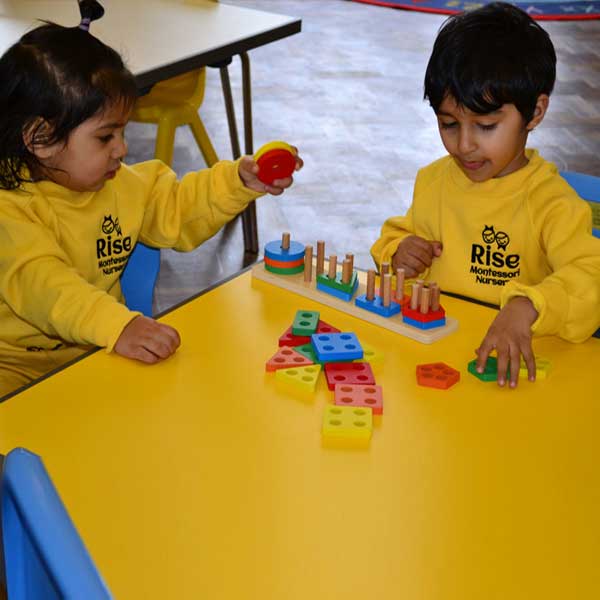While the importance of reading aloud to children as a learning tool is widely acknowledged, the “how” is often overlooked. Learning how to become a better reader is the key to making reading enjoyable for you and your child but knowing the benefits of reading to your child is only half the battle. As you read to your child, you might want to incorporate some Montessori-inspired activities:
- Adore and revel in reading passages that you know by heart: Most three and four-year-old’s enjoy reading the same books repeatedly, just as they do in Montessori classrooms when they revisit favourite activities. This need for repetition is a fantastic teaching opportunity during read-alouds. Children usually begin to use the story’s vocabulary or remember its moral lessons after the fifth or tenth time. But, of course, this eagerness to hear the same story read multiple times only exists during the preschool picture book years.
- Help your child make connections between what they’ve read and what they’ve experienced in the world: In the upper grades, the emphasis is on how literature can serve as a guide for better living by discussing the moral lessons books offer and encouraging students to use their own literary experiences to shed light on the decisions they face in life. Of course, we wouldn’t recommend quite an abstract approach for preschoolers, but there are still plenty of ways to make reading relevant to your childs’ lives, even at ages 3 and 5.
- Allow your kid to pick out some books: Give your child the option to choose from the books you’ve picked out, but remember that you should make the initial selection, especially if you plan on reading the book more than once. Finding out what books your kid enjoys reading can be a lot of fun, and it can also be a great jumping-off point for discussions about your family’s values and decision-making processes. For what reason doesn’t one enjoy that one? After a certain age, let your child choose library books independently, even if you don’t particularly care for them. Sometimes it takes a book that’s not particularly exciting to bring out the unique joy we get from better ones.
- Your child’s reading habits need your firm guidance: Even if you’re reading to your kids in an interactive way, that doesn’t mean they can interrupt all the time, play with dolls, or run around the room. Your child will benefit just as much from the “freedom within limits” environment fostered in Montessori classrooms as they will from replicating it at home.
- In no way should reading be a condition of receiving a reward or avoiding a punishment: While there are plenty of programs out there that reward kid for reading , it’s important to remember that reading shouldn’t be associated with positive or negative reinforcement. Never give a reading as a reward, and never withhold a reading as a punishment. Reading is too valuable an experience to devalue with extrinsic motivations like rewards or punishments.
Conclusion
Instilling reading with significance through the selection of great books and making it a pleasurable, interactive experience will do wonders: it will help your child develop a lifelong love of reading and provide you with priceless moments to cherish.

